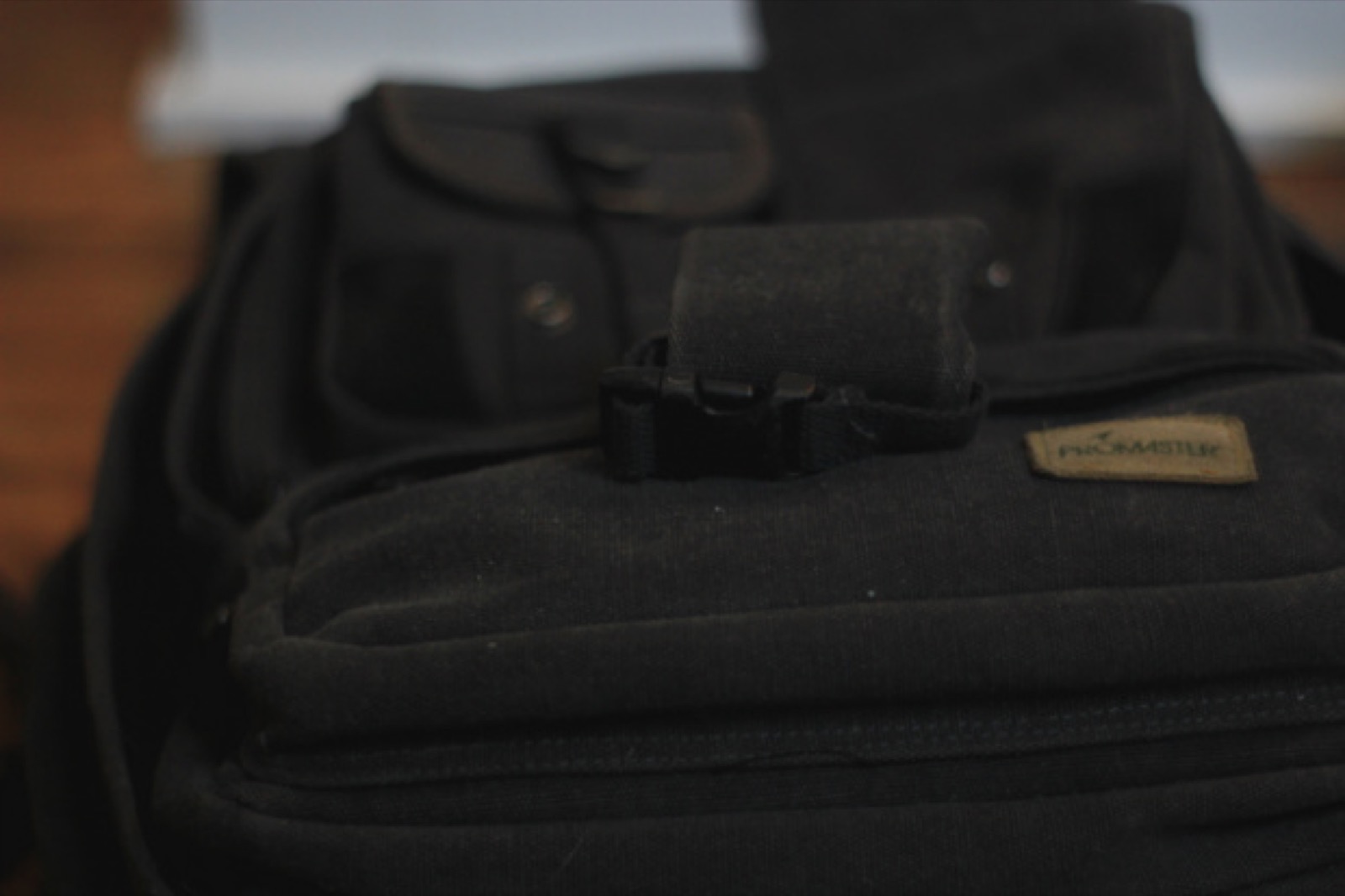Low Canadian Dollar means Canada has become a Budget Vacation Destination
Posted on January 17, 2016 • 4 minutes • 789 words
Table of contents
Canada has officially become a budget vacation destination for Americans and Europeans. With the Canadian dollar being lower than its been since 2003, this year is set to become one of the best times to visit Canada. What kind of savings can you expect? Let’s check out some figures!
First, What’s causing the low Canadian Dollar?
I am far from an expert on economics, dollar values, or anything in that imaginery FIAT world of lunacy. So if anyone smarter than me wants to comment below to correct me, feel free. What I do know is that the Canadian dollar has historically traded close to 80 cents to the US dollar. The inflated price we had been living with for the last few years was due in large part to the cost of oil. With oil now diving near $30 per barrel of crude (some estimates say it could go as low as $20), our dollar has tanked more or less overnight. Unfortunately Canada’s economy has been tied to the cost of oil for a while now. So until our economy has a chance to diversify we’re likely going to be hanging out in this low point for a while. On top of this all, Canada was in a bit of a rut for a couple years, some say recession, some don’t (likely due to the politics behind that word). Basically it’s been a total crap shoot and the situation doesn’t look like it’s going to be solved anytime soon. According to an article on the Globe & Mail, they claim the six reasons for the drop in value of the Canadian dollar as the following:
1. The oil market rout continues. 2. The Bank of Canada is likely to trim projections for economic growth at its next meeting this month. 3. So-called fair value models suggest “an equilibrium” of about 82.5 cents, so “the currency seems to have some additional catch-up work to do.” 4. The make-up in global reserves could be a “new negative force” for the loonie. In fact, central banks have been shying away from the Canadian dollar, according to the last reserve currency report from the International Monetary Fund, released last week. 5. Flows into Canadian assets have been weak. 6. Many investors were “disappointed” by how the loonie trailed the rally in the U.S. dollar in the second half of last year.
Let’s see how your dollar stacks up!
Note: The below rates were as of Jan 17, 2016. 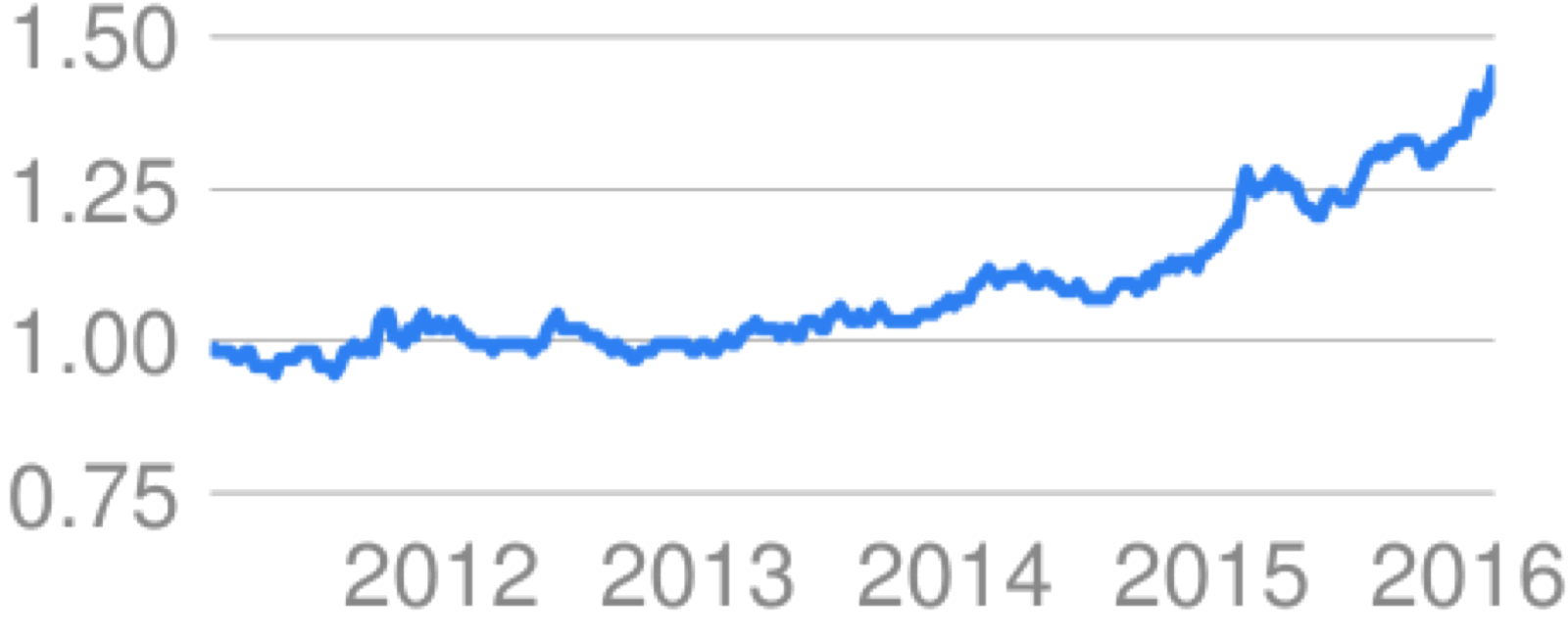
USD to CAD ($100 USD > $146.03CAD)
As of today, $100 USD converts to $146.03 CAD. That extra value can mean huge savings on things like hotels, tours, and dining out. View latest USD to CAD
rates. 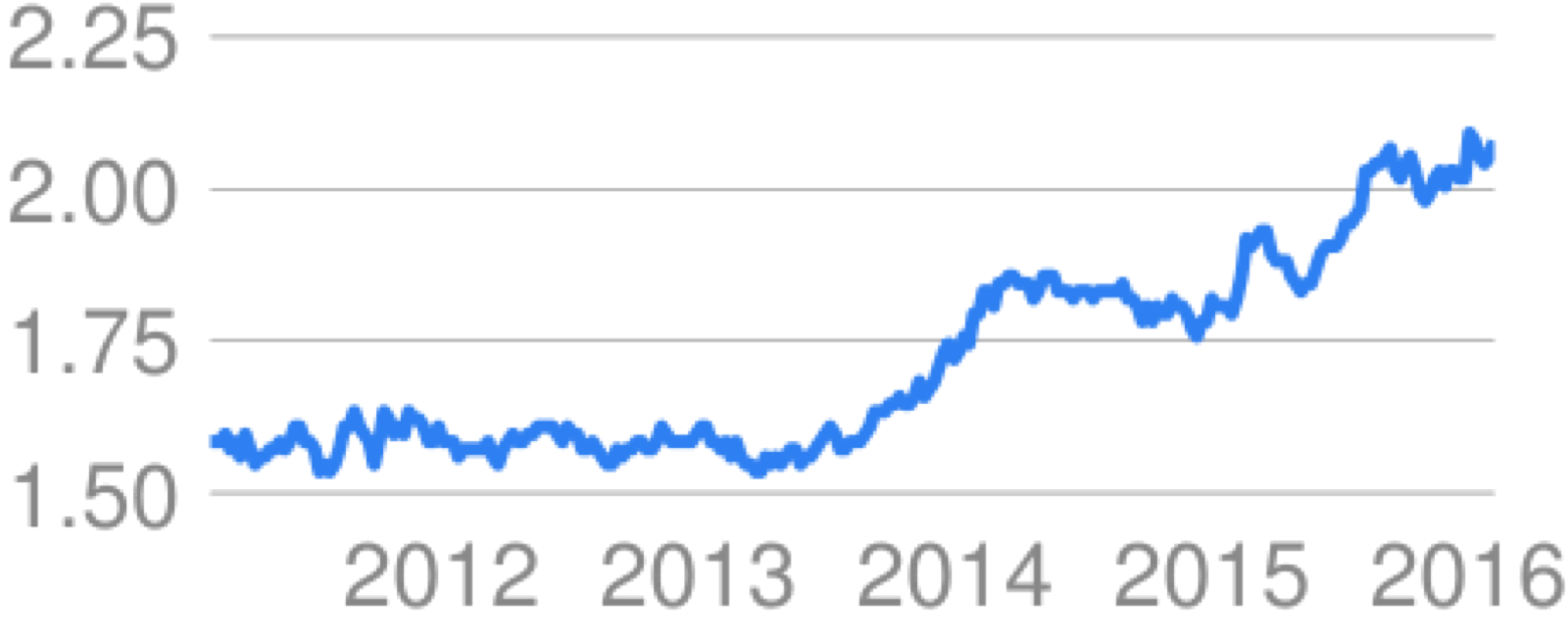
GBP to CAD (£100 GBP > $208.21 CAD)
The British Pound is kicking the everloving snot out of the Canadian dollar. Currently £100 GBP will earn you $208.21 CAD. You can effectively double you dollar and make it last that much longer. It’s about time you visit this former colony of yours! View latest GBP to CAD rates.
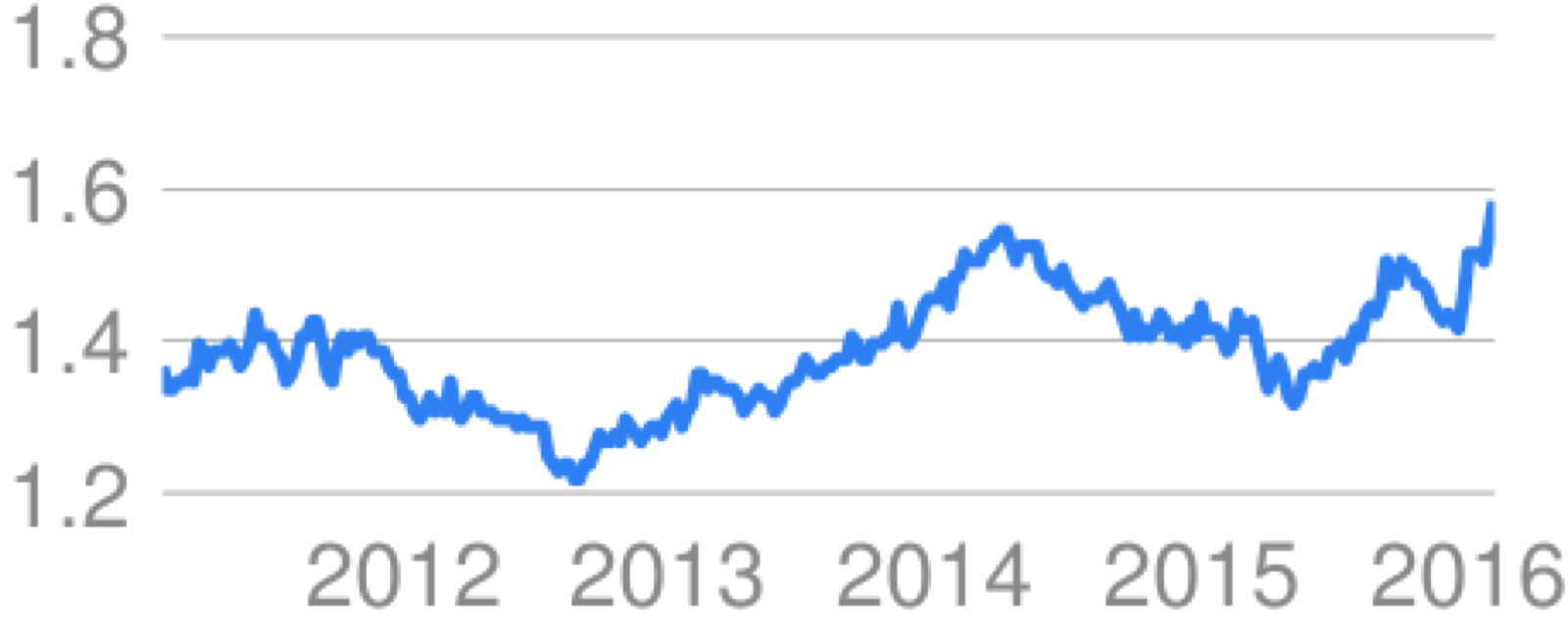 EUR to CAD (€100 EUR > $159.67 CAD)
EUR to CAD (€100 EUR > $159.67 CAD)
It appears the EURO is also able to benefit from the low Canadian dollar. While flights to Canada may still set you back, once you’re in Canada you can stretch your dollar a little further than even Americans. Currently €100 will score you $159.67 CAD. View latest EUR to CAD
rates. 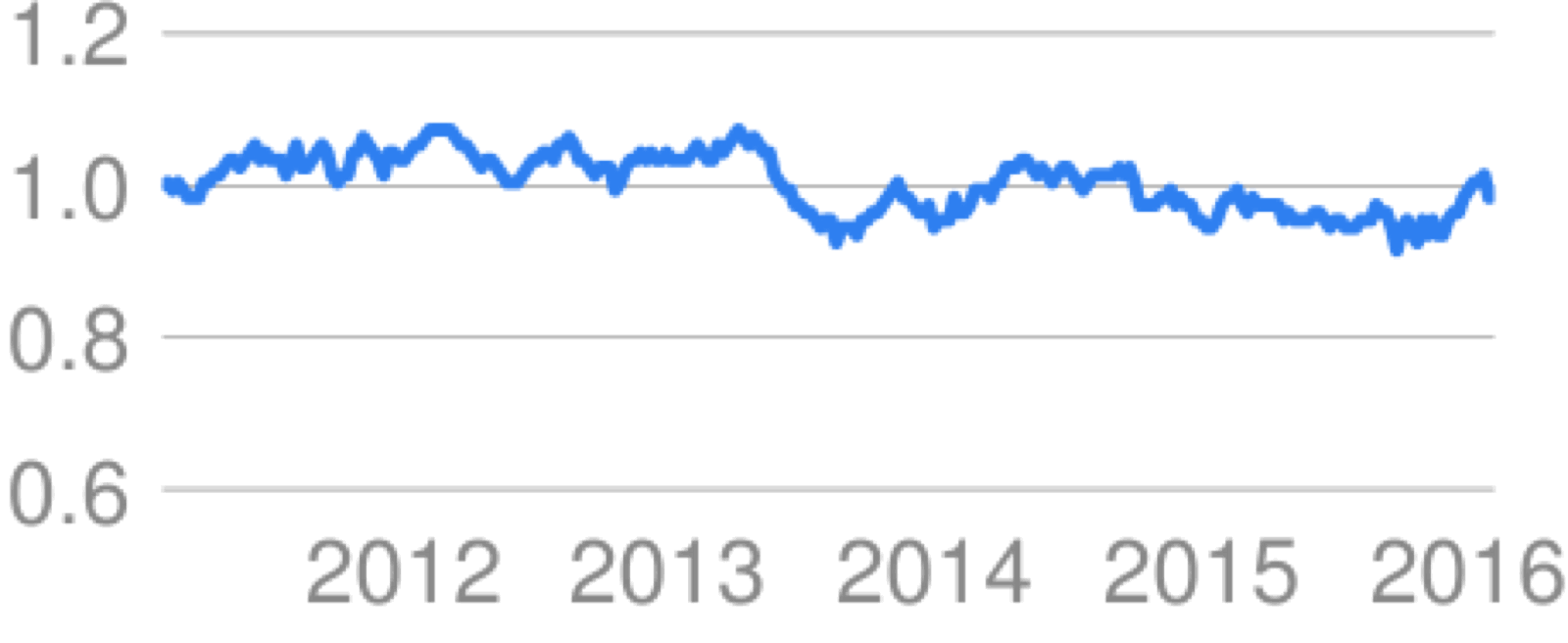
AUD to CAD ($100 AUD > $99.80 CAD)
Australia and Canada have typically had a fairly even dollar, buck for buck, and it looks like that’s true again this time around. Currently $100 AUD will get you $99.80 CAD. Not exactly a savings to be had here, but that doesn’t mean we don’t want to see you in these parts. View latest AUD to CAD rates.
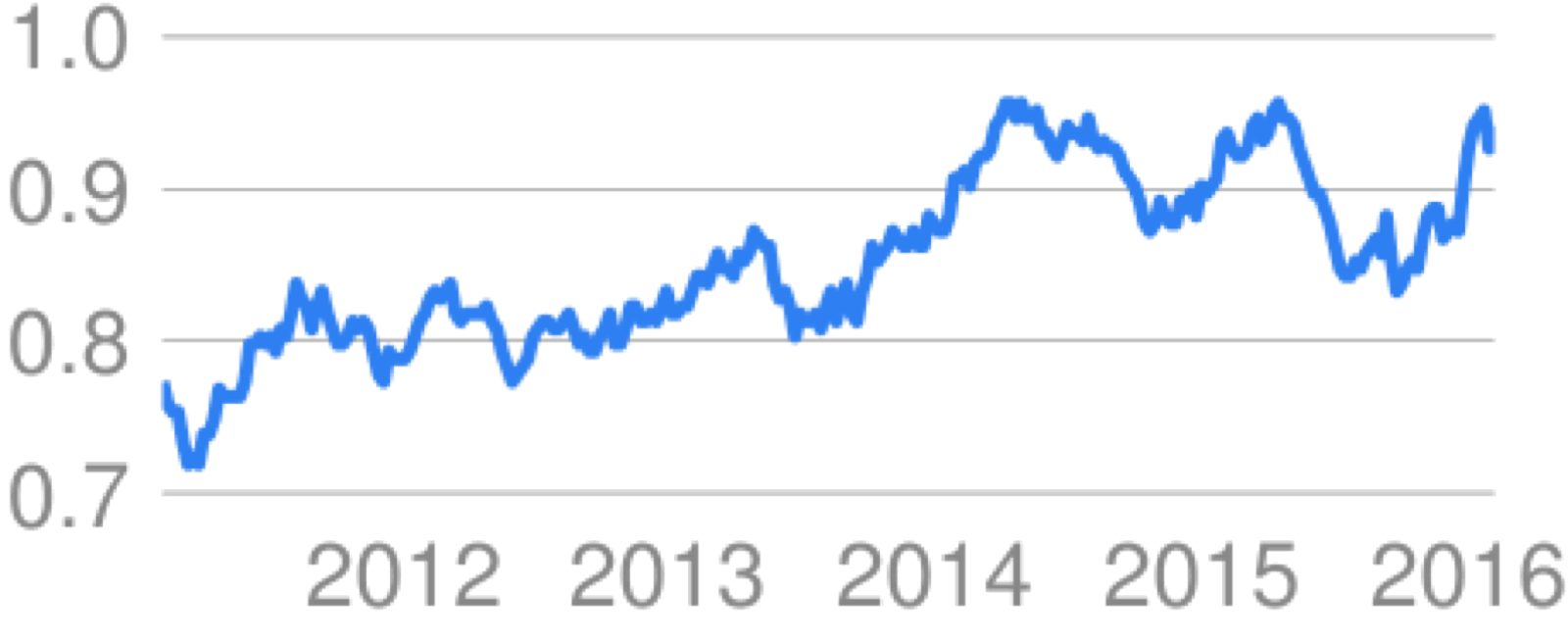 NZD to CAD ($100 NZD > $94.43 CAD)
NZD to CAD ($100 NZD > $94.43 CAD)
The low Canadian dollar has brought the New Zealand dollar much closer than it typically is. Currently $100 New Zealand dollars will get you $94.43 Canadian Dollars. That’s good news for Kiwis. Should make it much cheaper to visit, though still not exactly any huge savings to be had unless you compare it to 2011-2012. View latest KIWI to CAD rates.
Cost of Goods Increasing
Keep in mind that the low dollar means the cost of goods in Canada are slowly climbing to reflect that. The prices may surprise you. Things that are traditionally more expensive in Canada (beer, cheese, etc) will remain that way, but we’re already seeing a climb in prices at the grocery stores. Restaurants, hotels, hostels, and tours haven’t really seen much of an increase in price yet, so there are still savings to be made. Just not for that head of cauliflower.





